The news has been full of very difficult stories of late, from ISIS and the beheading of James Foley to the tragic events in Ferguson, Mo.
For many parents, knowing what to say (or not to say) is very difficult, especially in this digital age when graphic images and news are more accessible to their kids via peers and social media than ever before.
To better understand this very modern parenting problem, BuzzFeed asked parents — both on staff and in the parenting community — to share how they address it in their homes.

I grew up in El Salvador during the worst part of a civil war that raged for 10 years. I was witness to violence at an early age and would hear stories of kidnappings and massacres, not to count all the bombs and fireshots that eventually just became a nuisance. Even so, I had a beautiful childhood. I don't believe in sheltering my 7-year-old daughter from the reality she's growing up in. That doesn't mean I watch the news with her or talk about it, but if she sees or hears something and asks, I explain the issue as simply as I can and remind her to be grateful for our life every single day.
—Ana Flores, Spanglish Baby
I think it depends on the age and temperament of the child. I purposefully keep the TV off during major and scary news events but I know that I can't shield my tween as much as I want to. My husband and I hid the front page of the NY Post [on Wednesday] because it was a graphic screenshot from Foley's beheading. It was disturbing for me to digest and my son doesn't need to see that. However, if he has any questions or hears about it, I will answer them honestly, but he doesn't need to see the images ever. With that and Newtown for example, I explain that these are rare occurrences and even though it may be on every news channel the vast majority of people in this world are kind and good and that this represents the minority. At his age (11) he's sensitive to not knowing what his peers know. I think he would have been upset if he walked into school on the Monday when his friends would be talking about Newtown and he didn't know.
Context is crucial. With Ferguson, I will not shield him from the news cycle on that. It's important for him to understand that this is a critical event in our nation's history and that we need to know and understand what is happening there. Again, he's a tween and can handle it.
—Isabel Kallman, Alpha Mom

In the past parents may have been able to keep traumatic world events from their kids by avoiding the evening news or throwing away the newspaper, but those days are over. With social media and the internet, kids will stumble across these things, and it's our job to help them understand what they're seeing — especially so that they're not getting their information entirely from kids at school who show them a troubling video or image on their phone. With that said, knowing what to say about these events is very hard, because how do you help your kid understand something you don't entirely understand yourself? Honestly, when it comes to something like a school shooting, James Foley's beheading, or the events in Ferguson, I have a hard time not wondering "Why?" or "How?" myself.
We may not have a magic answer, but I nevertheless think it's crucial that we be honest with our kids about what's happening (to the extent that is appropriate for their age) while also making sure that they feel safe. Our kids should always feel safe even when the world is a very scary place.
—Mike Spohr, BuzzFeed
I don't prepare. If I get any indication that they know something, I'll scope out what they know and fill in the holes with truthful, accurate, and age-appropriate information.
—Jen Hajer, The Martha Project
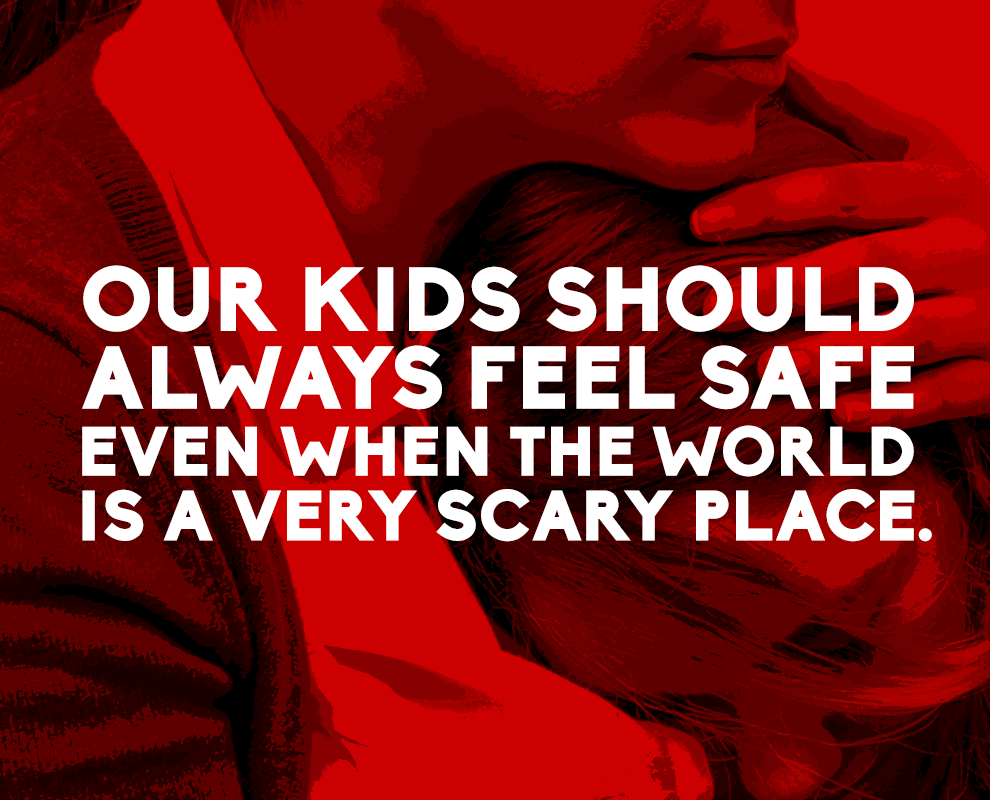
Find out what they already know first.
Find out what they're feeling so you can address it. (Fear? Confusion? Anger?)
No images. They are graphic and frightful. Or, at least, take caution.
Talk about the history of the area.
[Re: Ferguson] Show them what happened with Cliven Bundy. Ask comparative questions about the inequality. They'll get it.
Validate all their feelings and when you don't know the answer to their questions tell them that. Tell them we can make a difference in voting and jobs and that this is a SYSTEM that is broken.
—Kelly Wickham, Mocha Momma
I don't think I would broach the subject if I didn't think my daughter was already exposed to the images but if she was, or if I thought having an honest, age-appropriate conversation would be a good thing, I would.
Regarding James Foley, I might speak more about his work as a reporter. Talk about how brave he was and how important it is that people go out to find and tell the truth. I would use words like died and say that he was killed by people who didn't want the truth to be told and not sugarcoat that fact, but I probably wouldn't go into detail about how unless she had specific questions.
Travesties like Ferguson are even harder because it's here, it's home, and it's involving people that we teach our children to trust. I guess in that instance I would explain that a policeman killed another man. That the people in the town were very sad and angry. And I would state what the officer did was not right. But that most police officers are good people who want to help.
Lastly, no matter what topic, I would make sure I was listening to the questions she was asking, and do my best to reassure her and calm any anxiety that the images may have caused.
—Brigid Torres Hyssong; Stay-at-Home Mom, Los Angeles
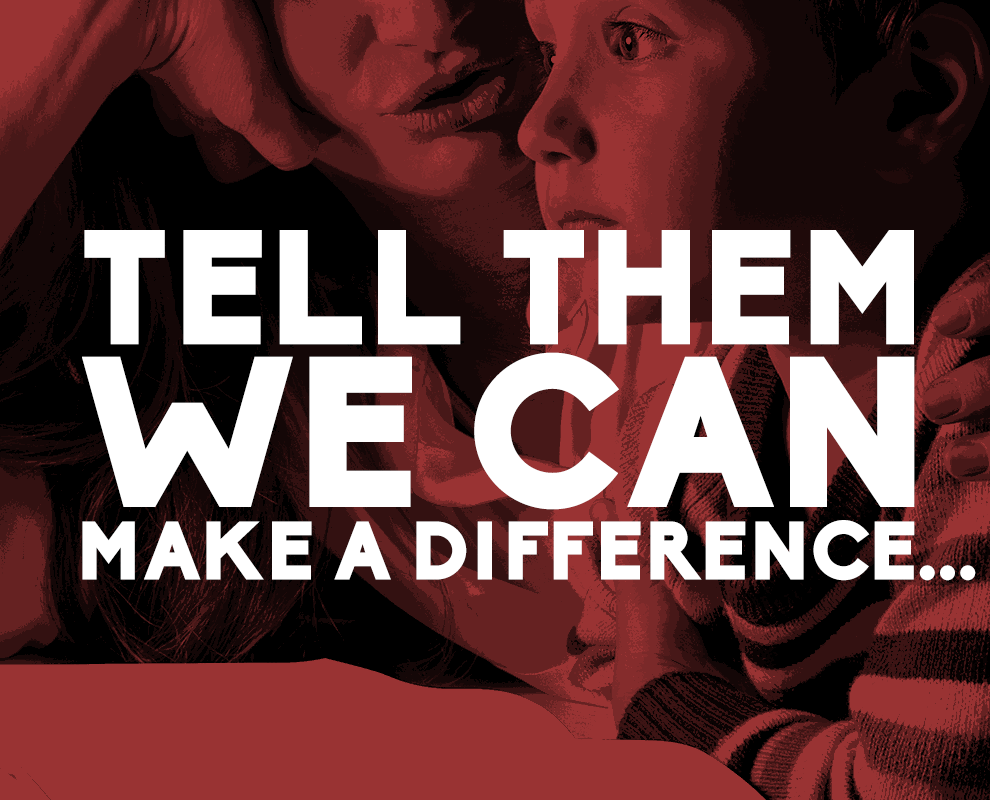
My daughter just started public kindergarten, and my instinct is to avoid heavy topics unless she asks, but kids sharing visuals at school is becoming a real concern.
When there is viral imagery involved — like with the beheading of James Foley, or violence in Ferguson, Mo. — we preemptively give her the broad strokes: That journalists are doing noble and dangerous work when they report from war zones, and that war is something that happens when entire countries can't use their words. Similarly, while we haven't addressed Ferguson head on, we've explained to her that while many police officers are working to keep the peace, there will always be people in uniform that abuse that power to advance their own agendas, or to raise themselves above the law.
We don't dig deeper than that because she's usually moved on to which shade of purple crayon is perfect for the My Little Pony she's coloring, but at least I can hold on to the idea that if she catches wind of one of the world's current horrors at school maybe she won't be completely traumatized by it and we'll have a basis of information to build on.
—Morgan Shanahan, BuzzFeed
I think my husband and I prepared, in general, by talking openly about choices other people may make, and how there are people who do bad and hurtful things in this world. At this time, with our kids being as young as they are, we aren't specifically discussing any of these events with them. In fact, I'd say we are working to shield them by keeping the TV off of the news and not discussing it in front of them. That doesn't mean we won't discuss the issues that are fueling these events with them. Ferguson has inspired us to have a general conversation about race with our 6-year-old.
—Jill Krause, Baby Rabies
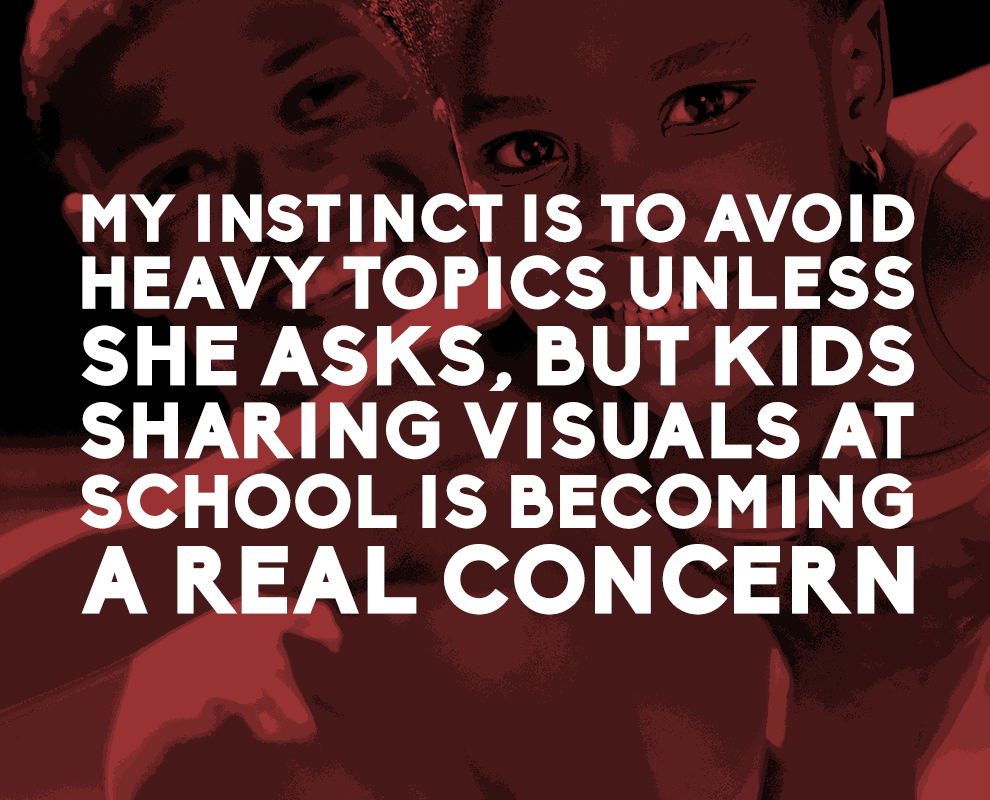
My son, LJ, knows nothing, and right now that's how I want it. It's nice to dream that it will be a non-issue by the time he's old enough to understand and have questions, and that I won't have to tell him that he'll be held to a different standard because he's brown, but I'm realistic. I'll teach him to be proud of his heritage and of his color and I'll tell him he's lucky we live in a diverse and integrated area. Beyond that, I'll be as truthful as I can in an age-appropriate way. So many future talks. But for now, I'm letting my kid be a kid.
—Ariana Rosado Silver, Event Planner, Newburgh, N.Y.
Am I a bad human if I'm intentionally keeping my son away from TVs right now? Or at least away from TVs that are on anything other than the Little League World Series? Zero ISIS, lots of Mo'Ne.
—Laura Mayes, Blog Con Queso
I don't know that I'll ever be fully prepared as a parent to inform my children about the depths of human cruelty and sadness. My job, under the heading of their protection and survival, is to speak to them in a way they can relate to so I can build their understanding bit by bit until they are strong, compassionate citizens of the world.
Also, I try to teach them using old stories. Allegories go a long way with kids and I think they derive more meaning than we give them credit. I remember the first time my son, Finn, cried when a character died in a movie. He didn't cry because he was afraid. He was upset at the loss of life and someone he cared about. I hope I can gradually build up his tolerance because the past two weeks have almost leveled me inside.
—Charlie Capen, How To Be A Dad
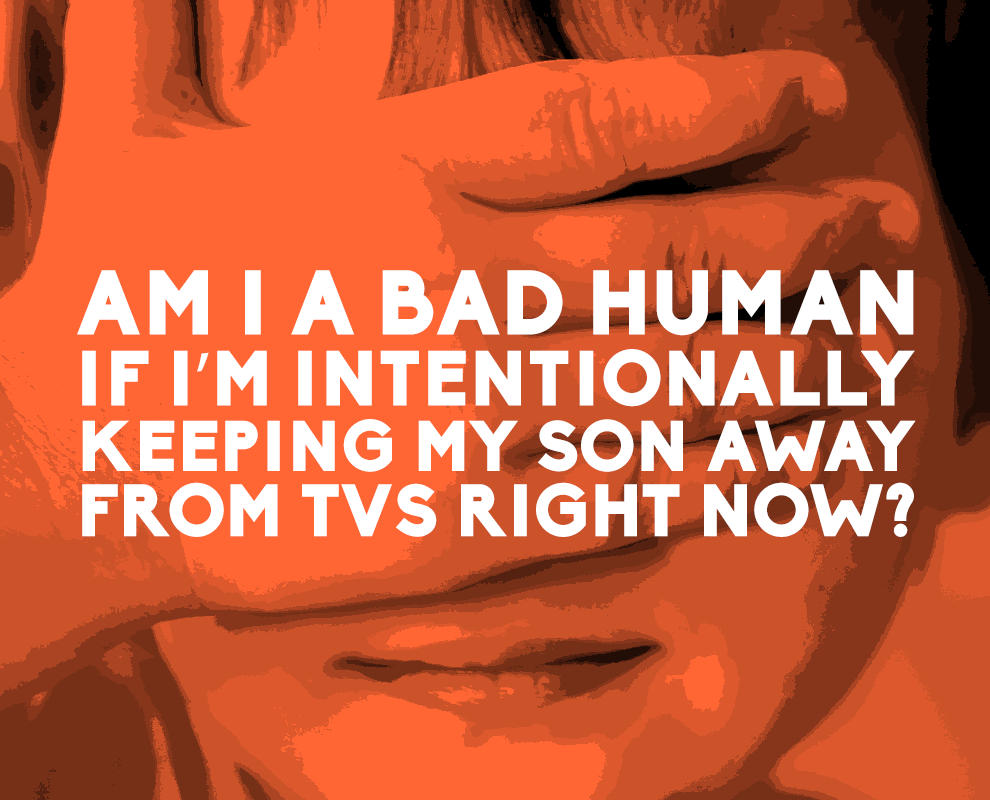
I've learned to allow my children to dictate the current events we discuss. I let them ask any questions at all, and try not to give them more information than they can handle (which is admittedly hard for me). It's case by case, however. Sometimes they ask me, "Why are you crying at the TV?" and I tell them in language they can understand...and sometimes I just turn the channel and tell them I have allergies.
In the case of Ferguson, it's part of an ongoing, frank discussion we have had for years about race in America, something I was inspired to do thanks to the readers of my blog and a great chapter in Nurtureshock. It describes how white people tend to avoid talking about race, creating an inadvertent taboo on the topic. I've also learned that saying "we're all the same on the inside" really doesn't cut it, because while there is a lot that unites us in our humanity, so many people have vastly different experiences in our country, and we need to acknowledge that with sensitivity. Mostly, I want them to know that we have a long way to go in this country as far as equality, and that they have to be part of the solution too.
—Liz Gumbinner, Mom 101
My children are very young, so I do my best to keep them from seeing the images that fill the current news cycle. Still, *I* am seeing them, and they're affecting me deeply. I think it's important to remember that children can sense when the adults around them are upset. It's OK to be sad/angry/frustrated around kids — it's good for them to see adults have these emotions, too! This summer has been filled with terrible news and world events, and I've found myself with tears in my eyes several times. Instead of hiding them from my 4-½-year-old daughter, I let her ask me questions. I answer them to the best of my ability in plain, simple language. I let her guide the conversation, always keeping in mind what she can handle. She's never asked me for more information than she can process. I am always honest with my daughter, even when the answers are difficult, because I want her to trust that as she gets older she can come to me with the harder questions and I'll tell her the truth.
—Heather Spohr, The Spohrs Are Multiplying
My children are small, so I hope to have a few years until I have to face this. However, my niece is 12 and full of questions. If she were to ask me, I'd first ask her what she already knows about the tragedy. Then I'd slowly, carefully but truthfully explain to her the circumstances. {Re: Ferguson] "People are upset because a young man named Mike Brown was shot by a police officer when he shouldn't have been. Just because someone is in a position of power, like a police officer or doctor, doesn't mean they are always right. Most of the time they are trying to protect us, sometimes they don't."
—Tiffany Reese, Lookie Boo

At my daughter's elementary school they have drills "in case bad people come in" to train the staff and the kids, and that opened up the conversation because she asked why people would do bad things or want to do bad things to others.
It was tough. I had to explain that sometimes bad things happen. Sometimes we can explain it, other times we can't. I added that no matter what, it was our job to make sure she was protected and loved and if she ever had questions, to let us know. That seemed to ease her mind a bit.
—Yolanda Machado, Sassy Momma in LA
I got a lot of misinformation as a kid because I learned more from my friends than I did from my parents, who were hesitant to bring up current events because they felt it was "too adult" and negative. It's important to me that my 14-year-old daughter gets the right information about relevant topics.
My daughter doesn't have social media accounts or watch the news on a regular basis, but she is in the loop because of conversations she has at school and through chats via text with her friends. I am almost never the first person to talk to her about a current event, and it astounds me that she knows the latest information, often before I hear those updates.
This also applies to viral memes and other pop culture hits. When I come across a video or image I think is funny or clever, I often send it to my teen daughter. Well, not as much anymore because how many times can you hear "I saw this last week" before you give up?
—Elizabeth Jayne Liu, Flourish in Progress
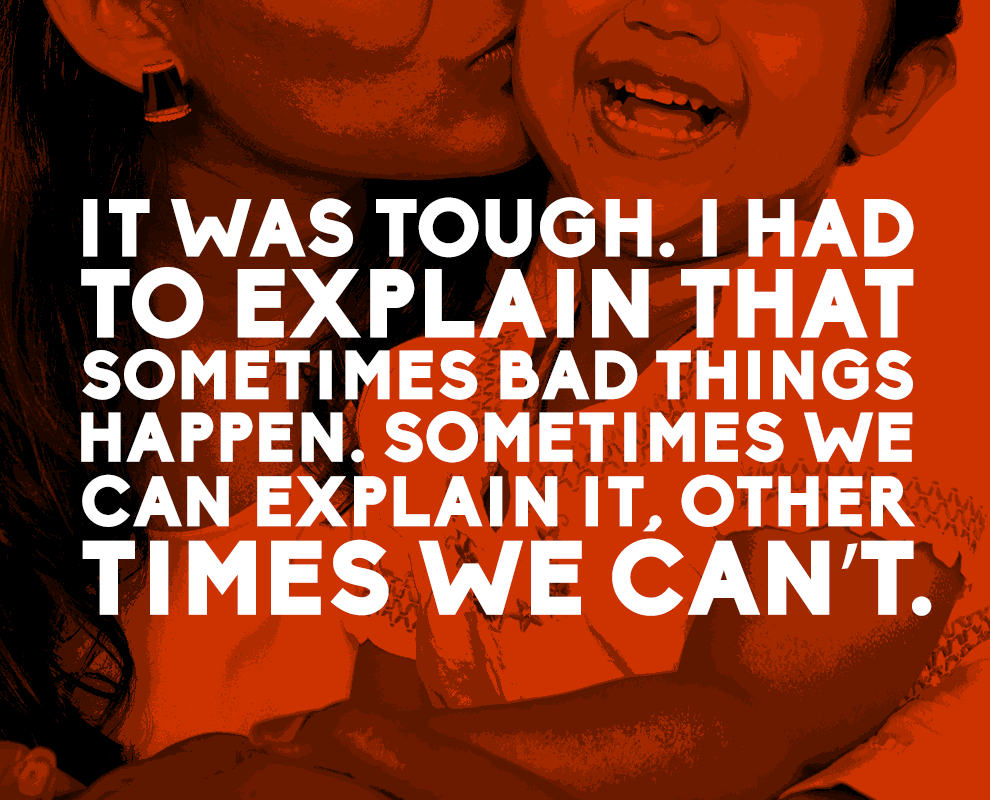
We talk about history. That people come to each event with a different set of experiences that affect how they view things and what they believe, and their life experiences may be very different than yours and their beliefs are as valid as yours.
—Katherine Stone, Postpartum Progress
My children often bring home stories of current events. Sometimes, as in the case of "Yosemite has burned down" or "There are sharks eating people at the beach," explaining it is a simple matter of laying out context and facts. Other times, trying to explain world events in a way a small child can understand feels like an exercise in throwing cases of senseless horror or unspeakable violence into sharp relief, stripped of all the cool, self-protective, "it can't happen here" distance we rely on in our own lives. I want to protect my children, but I also want them to understand they live in a world that is complicated and, at times, unjust and tragic. But where do you draw the line? And how?
After the Connecticut school shootings, the LAPD stationed police officers at every school in the city for a month, and my children came home with whitewashed explanations for why they were there. I let those stand. I couldn't bear to lay out the real reasons they were there. The police also gifted my children with strange fashion advice — for example, my son insisted on a mullet, because the police officer told him it was cool to have "business in the front, party in the back."
In other cases, their lives have been buffeted by big policy issues. The parents of some of the children in our community have been deported, for example. Others have lost their homes, or gotten sick.
And then there is the example of a friend of mine, who handed her preteen a story on unaccompanied immigrant minor children and said: "These children brave rape and gang violence and ride trains here all by themselves. Why can't you make your own lunch and clean your room?"
—Jessica Garrison, BuzzFeed
If they hear about national or world tragedies at school and want to know why it happened, the simplest and best reason I can think to give them is "because." Because sometimes people are bad and they make bad choices. Sometimes people choose to hurt other people. Sometimes the world is not good. And then I remind them that they are the very embodiment of goodness in my eyes and that it's important that they are kind, but know how to stand up when they see people making bad choices and hurting others.
Maybe that's bigger than them and their ages. But maybe it isn't.
—Miranda Wicker, Finding Walden

